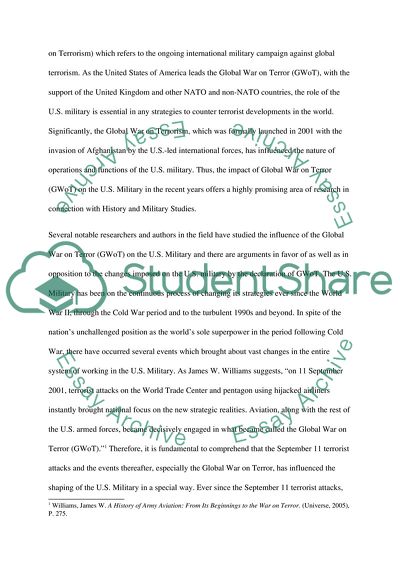Cite this document
(Global War on Terrorism: Its' Effect on the US Military Research Proposal, n.d.)
Global War on Terrorism: Its' Effect on the US Military Research Proposal. Retrieved from https://studentshare.org/military/1568620-global-war-on-terrorism-its-effect-on-the-us-military-not-sure-on-this-topic
Global War on Terrorism: Its' Effect on the US Military Research Proposal. Retrieved from https://studentshare.org/military/1568620-global-war-on-terrorism-its-effect-on-the-us-military-not-sure-on-this-topic
(Global War on Terrorism: Its' Effect on the US Military Research Proposal)
Global War on Terrorism: Its' Effect on the US Military Research Proposal. https://studentshare.org/military/1568620-global-war-on-terrorism-its-effect-on-the-us-military-not-sure-on-this-topic.
Global War on Terrorism: Its' Effect on the US Military Research Proposal. https://studentshare.org/military/1568620-global-war-on-terrorism-its-effect-on-the-us-military-not-sure-on-this-topic.
“Global War on Terrorism: Its' Effect on the US Military Research Proposal”, n.d. https://studentshare.org/military/1568620-global-war-on-terrorism-its-effect-on-the-us-military-not-sure-on-this-topic.


